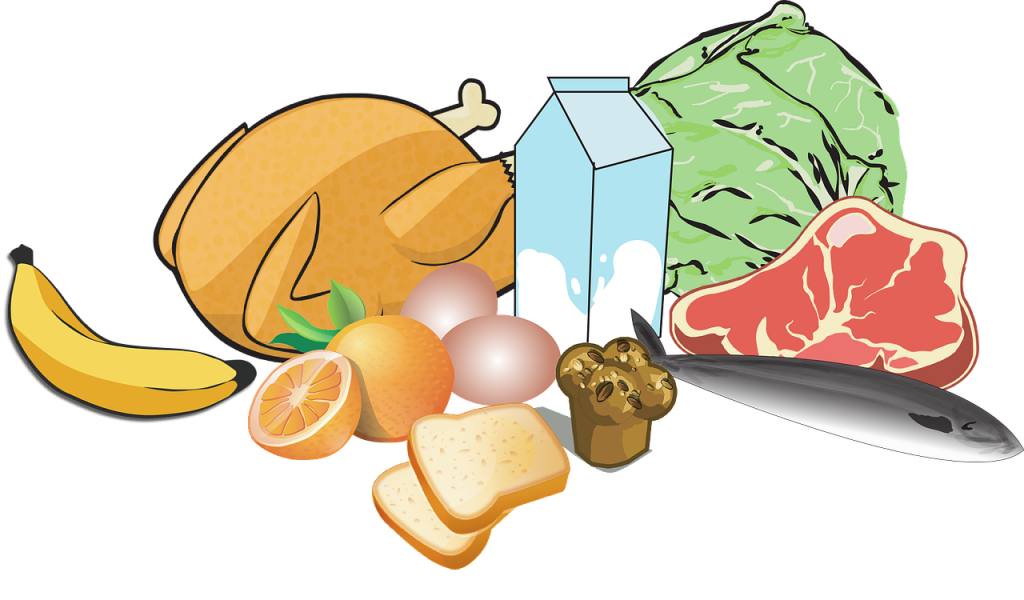
Eczema – what to eat and what to avoid?
If your child suffers from eczema then you’ll be familiar with the sight of inflamed, itchy and red skin. Whilst the most obvious approach might seem to be to address the surface of the skin with creams there’s actually lots of evidence now showing us how important it is to look at the inside-out view i.e. addressing skin health from within the body.
In order to understand the possible inside-out ways of addressing eczema let’s first understand the multifactorial causes of eczema:
- a parent or both with atopic diseases (asthma, allergies, eczema)
- gut health issues
- food intolerance
- food allergy
- overconsumption of sugar
- environmental allergies
- stress
- temperature extremes
- microbes
- hormones
With the first possible contributing factor it may seem that there is not a lot that can be done. If parent/s have or had atopic diseases then their child is also likely to have some form of atopic disease. However, when we link the inheritance factors to gut health issues we have a clearer understanding of what approach may be taken to help. Add to this other factors, including avoidance of trigger (intolerant) foods, reduction in sugar consumption, avoidance of trigger environmental toxins, reduction in stress, and management of exposure to extreme temperatures, microbes as well as hormone balancing and we start to stack the odds against eczema. Let’s discuss each issue as they are listed.
GUT HEALTH
There is such a thing as the GUT-SKIN CONNECTION. An imbalance of bacteria (dysbiosis) in the gut has been linked to poor skin health and eczema is amongst the leading skin conditions associated with this sort of imbalance. Balancing gut bacteria may therefore help with improving eczema. One way to try and balance gut bacteria is by incorporating both prebiotics and probiotics into the diet of the person suffering from eczema.
In simple terms probiotics are the healthy bacteria that act as an army defending the gut against invaders and prebiotics feed the probiotic army to help them do their job.
Prebiotics include: onion, garlic, leeks, asparagus, berries, flaxseeds, yacon syrup (I use this in place of maple syrup on pancakes, yogurt etc)
Resistant starch can also provide fuel for probiotics. Include cold rice, potatoes but also under-ripe bananas and plantains, yams, sweet potatoes and legumes in your child’s diet.
Probiotics can be found in fermented foods including – kefir (dairy or non-dairy based), natural yogurt, unpasteurised cheese (however, word of caution – dairy may be a trigger food. See below), sauerkraut, kimchi, kombucha, apple cider vinegar (raw), tempeh/miso/soy sauce (soy may also be a trigger food – see below).
Probiotics and prebiotics can also be supplemented using nutritional supplements. In the first instance, I would recommend trying food sources of both pre and probiotics.
FOOD INTOLERANCE
Food intolerance is common in those suffering from eczema. The most common trigger foods are: eggs, dairy foods, wheat, peanuts and soy-based foods. Exposure to these foods can trigger or worsen eczema symptoms. There are most likely gut-related health issues linked to the existence of food intolerance in the first place. Something called LEAKY GUT SYNDROME exists (despite what some might say) and this can mean food particles end up where they shouldn’t and cause the body to respond with its own defence mechanisms, one of which is to reject what it sees as foreign substances. A gut healing protocol is not entuirely straight-forward and can take some time but if multiple food intolerances exist that’s exactly where I’d start. Working with a nutritional therapy practitioner or naturopath could be helpful in fixing a leaky gut.
FOOD ALLERGY
Food allergy is also linked to eczema. The mechanisms are less well understood. However, avoidance of allergenic foods goes without saying as they could be lethal to those who are allergic.
OVERCONSUMPTION OF SUGAR
Eating too many sugary foods such as soft drinks, cakes, biscuits and sweets causes your insulin levels to spike, creating a burst of inflammation throughout your body. This inflammation produces enzymes that can result in eczema wounds not healing or taking far longer to heal than they would normally.
ENVIRONMENTAL TOXINS
Irritants such as detergents, soaps, creams, deodorants, rubber, leather, synthetic fibres but also dust mites, pets, pollens, mould and even dandruff can cause eczema to worsen. Avoidance of the culprits is imperative.
STRESS
Eczema is a psychodermatologic disorder whereby it can be triggered by stress. Stress management techniques are useful. Some of my clients have found meditation and sleep apps really helpful for their children. From a dietary perspective, managing blood sugar levels is important. Ensuring their diet is not overly full of sugars, refined carbohydrates and certainly no fruit juice can really help. Keeping to regular mealtimes and avoiding snack foods can also help too.
TEMPERATURE EXTREMES
Cold, hot, humid or dry extremes can all cause flare-ups. Think carefully about clothing. Manmade fibres are often worse than natural fibres. Also manage your own body temperature through cold showers, layered clothing, cold compresses.
MICROBES
Studies reveal that those suffering from eczema may be depleted in good bacteria both gut- and skin-based. The same studies also show that other microbes may be actively allowed to multiply and cause potential further inflammation leading to eczema. Again, these unwanted bacteria or bacteria in unwanted numbers may appear in the gut or the on the skin. Looking to gut health may be the key to restoring a good balance of bacteria.
Also related to gut health and eczema are low levels of Secretory IgA. Often associated with poor ability to fight back when microbes enter the body. This can be boosted using a supplement called Saccharomyces Boulardii.
FOODS THAT ACTIVELY HELP
Finally, on to foods that may be really helpful in boosting skin health. We have mentioned boosting gut health by focussing on prebiotic, resistant starch and probiotic foods. However there are some additional foods that can help to reduce inflammation and help the body to detoxify more efficiently. These include:
- Essential fats – both omega 6 and omega 3 have been shown to be helpful in maintaining skin health and in addressing the symptoms of eczema. Try to include avocado, sesame oil/tahini(if not a food trigger), flax seeds, chia seeds, walnuts and oily fish.
- Enzymatic Fruits – papaya and pineapple – reported to reduce inflammation.
- Cruciferous vegetables – cauliflower, Brussels sprouts, broccoli. These are known detoxifiers.
You can see that addressing eczema from the inside-out is not a case of one solution fits all. However there are some simple steps to take that could actively help your child to reduce the discomfort they experience from eczema.
